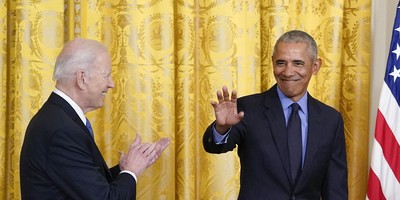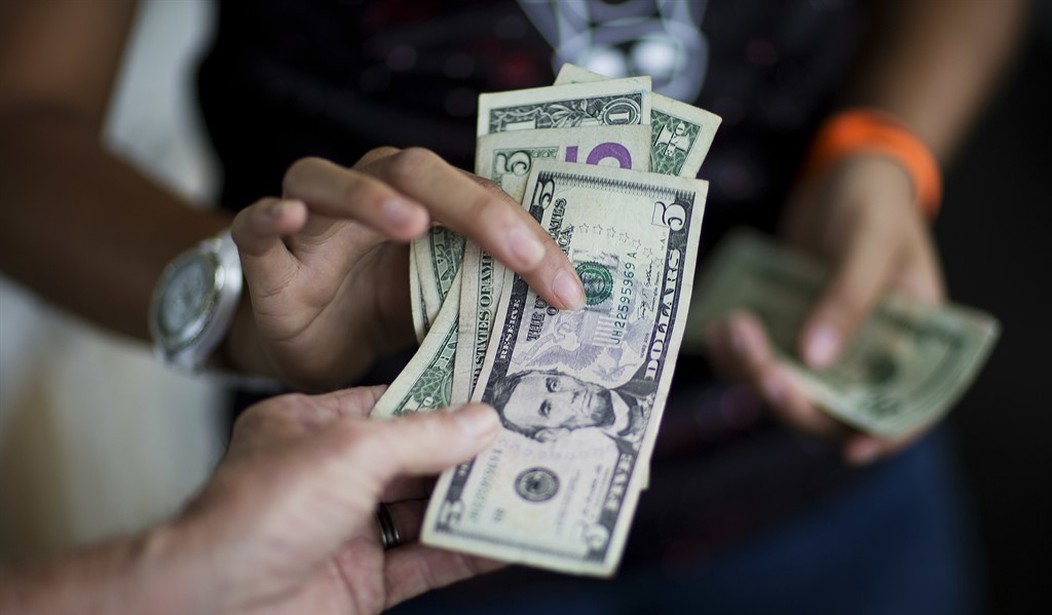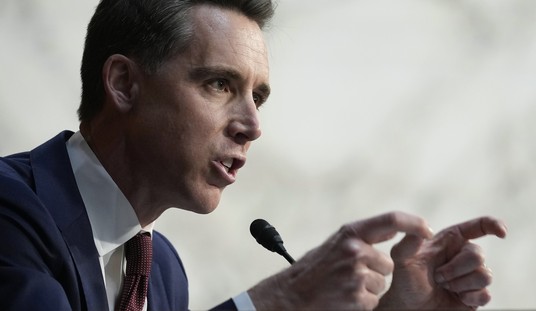This November, voters in Colorado are asked to vote on Amendment 70, which will raise the state’s minimum wage from $8.31 an hour to $12 an hour by 2020. But some groups couldn't even wait until November. On September 12, some local religious leaders, unions and minimum wage workers staged the "Denver Fight for 15 rally" and called for Colorado to adopt a minimum wage of $15 an hour. The rallywas part of the “Higher Ground Moral Day of Action” organized by the Rev. William J. Barber II, After the rally, a group of protesters presented a “moral declaration” to Gov. John Hickenlooper’s office.
It seems that "moral" is the key word that supporters of the minimum wage have been throwing around a lot lately. Anyone who opposes either the minimum wage hike or the concept of the minimum wage itself are called "immoral" and someone who "hates minorities and single moms." Many people who oppose the minimum wage seem to accept their opponents’ moral high ground, but argue against the minimum wage from the sheer economic standpoint, the "unintended consequence" ofhow the minimum wage has failed to lift the poor out of poverty and how it ruins employment opportunity for the youth.
Maybe it's time to reexamine the history of the minimum wage to validate whether it deserves the moral high ground as it supporters claim.
In the early 20th century, there were several major social and economic phenomenon in the U.S. First was the large influx of immigrants. Between 1880 and 1920, America received more than 20 million immigrants, mainly from Central, Eastern, and Southern Europe, including four million Italian immigrants. These immigrants were often regarded by native-born Americans as unwanted competition for jobs, especially low-paying jobs.
Around this time, the eugenics movement was riding high, supported by the Surgeon General and some senior officials from the Public Health Service (PHS) as well as powerful labor unions, who wanted the government to keep immigrants out in order to maintain high wages for American workers. In 1920, Harry Laughlin of the Eugenics Record Office testified before the U.S. Congress Committee on Immigration and Naturalization. He argued that “the ‘American’ gene pool was being polluted by a rising tide of intellectually and morally defective immigrants—primarily from eastern and southern Europe.”
Recommended
The early 20th century also saw women constitute about 25% of the industrial workforce and close to 50% of the agricultural workforce. Many female workers tended to concentrate in a few industries where the working conditions were harsh and pay was low, such as the garment industry. For example, average hourly earnings of women in cotton dress factories was 35 cents. Women were expected to quit their jobs as soon as they got married. Of course, there were a few exceptions. According to Alice Kessler-Harris, professor of American History at Columbia University,"most white women who earned wages were unmarried or widowed or separated. That was less true for women of color, a large proportion of whom earned wages even after they married because their men had a much harder time making a living."
In 1929, the U.S. was hit by the Great Depression. The decade that followed saw the unemployment rate stay above 15% (it reached 23.6% in 1932). Labor unions, anti-immigrant groups and progressive economists believed that if they could push the "unfit" population such as immigrants, minorities and women out of the workforce, the unemployment rate of white Anglo-Saxon men would drop, while the standard of living would go up.
Dr. Milton Friedman called the minimum wage laws racist at least in effect if not in intent. But according to Thomas C. Leonard, a professor at Princeton, that racist intent of the minimum wage laws was pretty evident from the very beginning. In his paper, “Retrospectives: Eugenics and Economics in the Progressive Era,” professor Leonard provided some chilling quotes from leading economists in the early 20ths century:
Royal Meeker, a Princeton economist who served as Woodrow Wilson’s U.S. Commissioner of Labor, wrote that "it is much better to enact a minimum-wage law even if it deprives these unfortunates of work…Better that the state should support the inefficient wholly and prevent the multiplication of the breed than subsidize incompetence and unthrift, enabling them to bring forth more of their kind.”
Harvard’s Arthur Holcombe, a member of the Massachusetts Minimum Wage Commission, praised Australia’s minimum wage law’s ability to “protect the white Australian’s standard of living from the invidious competition of the colored races, particularly of the Chinese.”
These progressive economists had no illusion that a minimum wage law would cause unemployment. But they regarded such unemployment as a social benefit because it performed their desired "eugenic service" by protecting "deserving workers from the competition of the unfit by making it illegal to work for less." (Thomas C. Leonard)
As the saying goes, the rest was history. Congress instituted the minimum wage in 1938 as part of the Fair Labor Standards Act (FLSA) and President Roosevelt signed it into law. The first minimum wage was set at 25 cents an hour. Since then, the federal minimum wage has been raised 22 times by 12 different presidents. As predicted, the minimum wage laws have hurt the most vulnerable segments of a society: the unskilled and least educated, which is largely constituted of minorities and youths.
Many of today's minimum wage supporters probably are unaware of the racist intent of the early supporters. But it is inexcusable that they continue to advocate for something so deeply rooted in discrimination, while ignoring its damning economic impact on minorities and youth. The only "moral declaration" of the minimum wage debate is to declare that a legal minimum wage is immoral. A free human being should have the liberty to decide how much his labor and talent are worth on his own and through a negotiation with an employer.

























Join the conversation as a VIP Member